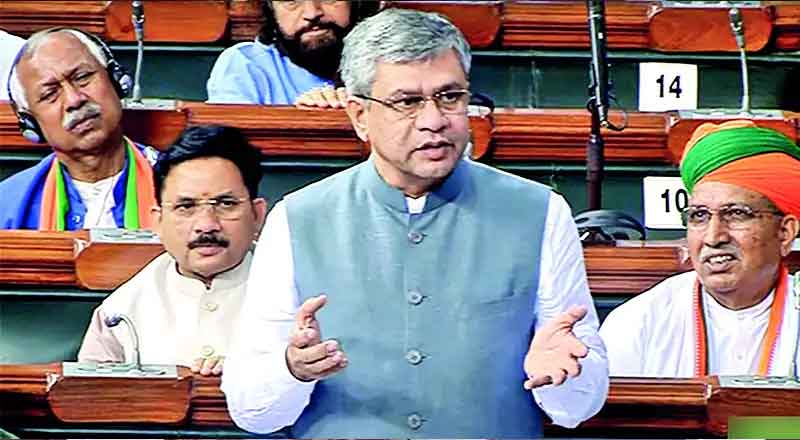- Amid protests, the Lok Sabha on August 7 passed the Digital Personal Data Protection (DPDP) Bill with a voice vote, which will now have to be cleared in the Rajya Sabha.
- The Digital Personal Data Protection Bill was first introduced in 2022 after its predecessor, Personal Data Protection Bill, was withdrawn by the government for being compliance-heavy.
- As reported by media, some opposition MPs also proposed amendments to the Bill, which include lowering the definition of children to mean those below 15 from the age limit of 18.
- The Centre has introduced certain “legitimate causes” where the government and private entities can process citizens’ data without explicit consent.
- The bill also has provisions that give wide exemptions to the government.
Amid protests, the Lok Sabha on August 7 passed the Digital Personal Data Protection (DPDP) Bill with a voice vote, bringing India a step closer to its first law that establishes how private or government entities can use or process citizens’ data.
Minister for Electronics and Information Technology Ashwini Vaishnaw moved the bill in the Lok Sabha. The bill will now head to the Rajya Sabha, where the ruling coalition is short of the majority mark. The opposition, which has expressed concerns over the legislation, has been demanding that the bill be sent to a parliamentary panel for further deliberations.
On August 3, Vaishnaw tabled the bill in the lower house of Parliament amid protests from the Opposition, which alleged that the bill violated citizens’ Right to Privacy. As reported by media, some opposition MPs also proposed amendments to the Bill, which include lowering the definition of children to mean those below 15 from the age limit of 18.
The Centre has introduced certain “legitimate causes” where the government and private entities can process citizens’ data without explicit consent. It will also impose restrictions on platforms on processing children’s data. The bill also mandates that India have its data protection regulator in the form of a Data Protection Board. The bill says the chairperson and members of the board will be appointed by the Union government.
Apart from that, the bill also has provisions that give wide exemptions to the government. The proposed law says its provisions will not apply in respect to the processing of personal data when notified by “instrumentality of the state as the central government may notify”.
These could be in cases related to the sovereignty and integrity of the country, security, friendly relations with foreign states, maintenance of public order or preventing incitement to any cognizable offence relating to any of these.
The Digital Personal Data Protection Bill, 2023 will now have to be cleared in the Rajya Sabha. The Bill, now headed to the Upper House, also amends the Right to Information Act, 2005 to remove public interest exemptions on disclosing personal information.
Minister of Electronics and Information Technology Ashwini Vaishnaw in his remarks dismissed concerns around wide government exemptions, surveillance, and the amendment of the RTI Act.
The RTI Act currently allows public authorities to disclose personal information, such as officials’ salaries, when it is in the public interest. The Bill would remove these caveats and completely disallow disclosing personal information.
(With inputs from agencies)





